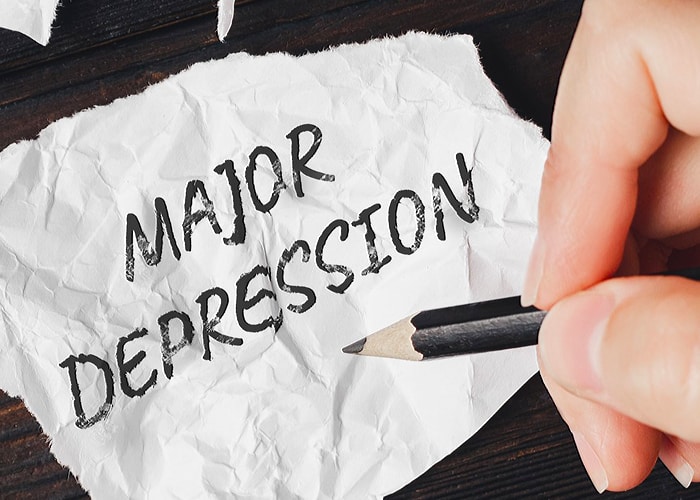What Are Antidepressants?
Pronounced as /ˌæntidɪˈpres(ə)nt/
Antidepressants are prescription drugs that are used to treat depression. They work by changing the balance of chemicals in your brain that regulate your mood and emotions. Antidepressant drugs usually take 4 to 6 weeks to start working, although some people can begin feeling better within a few days.
Unlike over the counter medications, you can only get antidepressant meds with a prescription from your doctor. If you are prescribed an antidepressant, it is important to take the medication exactly as directed and talk to your doctor if you have any questions or concerns.
Aside from treating depression, other antidepressants have also been used to treat other health conditions. There are antidepressant medications used to treat chronic nerve pain, relieve long term pain, insomnia, and agitation states.
There are also certain antidepressants that are being used for the treatment of attention deficit hyperactivity disorder (ADHD). Despite the fact that antidepressants are not FDA-approved for treating ADHD, there are doctors who still prescribe antidepressants for this purpose.
What Are the Types of Antidepressants?
There are different types of antidepressants, namely:
Selective Serotonin Reuptake Inhibitors (SSRIs)
- The most common prescription drug for depression.
- It prevents the brain from absorbing serotonin that leads to faster-messaging pathways that stabilize one’s mood.
- Examples: Prozac, Celexa, Paxil
Serotonin-Norepinephrine Reuptake Inhibitors (SNRIs)
- Used as a medication of depression, uncontrollable mood swings, obsessive-compulsive disorder (OCD), agitation disorders, effects of the menopausal period, extreme body pains, and severe headaches
- Examples: Effexor, Cymbalta
Tricyclic Antidepressants (TCAs)
- “Tricyclic” means its chemical structure has three rings
- Used to relieve symptoms of depression, agitation disorder, uneasiness, severe depression, OCD and bipolar disorder
- Examples: Elavil, Tofranil, Pamelor
Monoamine oxidase inhibitors (MAOIs)
- Typically prescribed before letting any patient have the SSRIs AND SNRIs
- Examples: Nardil, Parnate
Noradrenaline and Specific Serotonergic Antidepressants (NaSSAs)
- Used to when the other antidepressant types are not effective
- Also used to treat chronic anxiety
- Examples: Remeron, Tolvon, Avanza, Zispin
Atypical Antidepressants
- These are other antidepressants that do not specifically fall into the other categories
- Used to treat medical conditions that don’t fit the classification of other antidepressant types
- Examples: Wellbutrin, Vortioxetine, Trazodone
What Do Antidepressants Look Like?
Many antidepressants are sold in tablet or capsule form. Depending on the brand name, the type, or the treatment antidepressants are used for, the exact appearance will vary.
Antidepressants can come in many sizes, colors, and shapes. The shape of the pill will usually vary by the active ingredient, while the color and size may depend on the specific brand. Some antidepressant pills are even scored so they can be broken into smaller pieces for easier swallowing or to get a lower dose of medication.
What Are the Other Names of Antidepressants?
These drugs can either be called in terms of their classification names or by their brand names. Most people know these drugs by the popular brand names prescribed by medical personnel in the industry.
Classification Names for Antidepressants:
- Selective serotonin reuptake inhibitors (SSRIs)
- Serotonin-Norepinephrine reuptake inhibitors (SNRIs)
- Tricyclic antidepressants (TCAs)
- Monoamine oxidase inhibitors (MAOIs)
Popular Brand Names for Antidepressants:
- Prozac
- Celexa
- Paxil
- Effexor
- Cymbalta
- Elavil
- Tofranil
- Pamelor
- Nardil
- Parnate
- Remeron
- Wellbutrin
What Are the Street Names?
Antidepressants are known in the streets by different names according to color, user effect, brand names, culture or colloquial uses, and geographical area.
Color based street names:
- Blue Bullets
- Blue birds
- Blue angels
- Blue tips
- Blue heavens
- Blue devil
- Green frog
- Green dragons
- Marshmallow reds
- Pink ladies
- Red bullets
- Red and Blue
- Rainbows
- Reds
- Strawberries
Street names based on effects:
- Block busters
- Busters
- Downer
- Double trouble
- Goofers
- Drowsy high
- Idiot pills
- Lay back
- Stumbler
- Stoppers
Street names based on drug names:
- Barbies
- Barb
- Bambs
- Luds
- Ludes
- Nimbies
- Nemmies
- Nebbies
- Quad
- Phenos
- Phennies
- Quas
- Softballs
- Seggy
- Seccy
- Sopers
- Tuie
- Tranq
- Tooties
- Tooles
Street names based on culture and colloquial use:
- Christmas Rolls
- Chorals
- Dolls
- Disco Biscuits
- Gangster Pills
- Gorilla Pills
Street names based on geographical location:
- Mexican Reds
Street names based on people and fictional characters:
- Mickey Finn
- King Kong Pills
- Mother’s Little Helper
- Mighty Joe Young
- Mickeys
- Deceptive Street names:
- Backwards
- Coral
- Joy Juice
- Jellies
- Peth
What Are Antidepressants Used For?
Antidepressants are medications used to cure depressive disorders including mild depression, severe depression, unipolar major depression, and recurrent depression.
Taking antidepressants can help stabilize the mental health of the user. Depending on the type of depression, different types of antidepressants may be prescribed.
For mild depression, health care providers may prescribe SSRIs and SNRIs. For moderate or severe depression, a doctor may prescribe tricyclic antidepressants or NaSSAs. For more severe depression, atypical antidepressants may be prescribed.

Aside from treating depression, doctors may prescribe taking antidepressants to treat the following conditions:
- Anxiety
- ADHD
- PTSD
- Panic Disorder
- Chronic Pain / Long Term Pain
- Other Mental Health Conditions
How Do Antidepressants Work?
Antidepressants work by altering the amounts of some neurotransmitters in the central nervous system. The three important neurotransmitters that affect the mood and messaging process of the brain are serotonin, noradrenaline and dopamine.
While the process may not be fully understood, taking antidepressants typically balances the amount of serotonin in our brain. Serotonin is a neurotransmitter and its main impact is to modulate activity in the central nervous system.
When the levels of the neurotransmitters are increased, this can also disrupt the pain signals sent from the brain. This can help reduce discomfort, improve mood, and even help with chronic pain.
The effects of antidepressants usually take some time to appear, as it takes a few weeks for them to fully work. When taking antidepressant medications, it is important to continue taking them for several weeks as prescribed by your doctor even if you do not feel an immediate effect, as the full therapeutic benefits may not be immediately noticeable.
How Long Do Antidepressants Stay in Your System?
The exact length of time antidepressants stay inside your body will depend on the specific type of antidepressants you took. The duration is also affected by your current physiological status. If you have a stronger immune system and practice a healthy lifestyle, then it is likely that traces of the drugs can be removed from your system in just a short span of time.
Likewise, the longer you’ve been taking this medication, the more it accumulates in your system so it will take longer to flush out. Antidepressants having shorter half-lives tend to cause more problematic symptoms.
Below is a chart showing the half-lives for some known antidepressants.
| Drug | Half-life | 99% excreted from the body |
| Serotonin reuptake inhibitors | ||
| Paroxetine (Paxil) | 24 hours | 4.4 days |
| Sertraline (Zoloft) | 26 hours | 5.4 days |
| Escitalopram (Lexapro) | 27 to 32 hours | 6.1 days |
| Citalopram (Celexa) | 36 hours | 7.3 days |
| Fluoxetine (Prozac) | 4 to 6 days | 25 days |
| Serotonin and norepinephrine reuptake inhibitors | ||
| Venlafaxine (Effexor) | 5 hours | 1 day |
| Duloxetine (Cymbalta) | 12 hours | 2.5 days |
| Desvenlafaxine (Pristiq) | 12 hours | 2.5 days |
| Dopamine and norepinephrine reuptake inhibitor | ||
| Bupropion (Wellbutrin) | 21 hours | 4.4 days |
| Note: *Withdrawal symptoms starts after 90% of the drug is excreted from the body |
What Are the Side Effects of Antidepressants?
Like any other drugs, using antidepressants can cause side effects. Below are some of the common short-term and long-term adverse reactions from taking antidepressants.

Short-term effects:
- Feeling numb
- Vomiting
- Weight gain
- Diarrhea
- Irregular sleep patterns
- Blurred vision
Long-term effects:
- Tendency for suicide attempts
- Apathy
- Reduced optimistic feeling
- Sexual dysfunction (NaSSAs are believed to cause fewer sexual problems than other types of antidepressant medications)
How Does One Get Addicted to Antidepressants?
Chemically, antidepressants do not contain any addictive components which could definitely induce dependence. The concept of addiction or dependence of this substance only points to the withdrawal effects felt by the patient once medication is stopped.
In comparison to other mood-altering drugs, the withdrawal effects may not be as painful and harmful compared to those with addictive and neurotoxic properties. The best way to stop taking this drug is not by abruptly ceasing, but rather through lowering your dose gradually and seeking a professional treatment plan.
Why Are Antidepressants Dangerous?
Even though antidepressants may not contain addictive chemical contents, if you take unnecessary large doses without the prescription of medical personnel, it could lead to serious side-effects.
Several medical studies have reported serious risks for long-term use of these substances.
Suicide Risk - Long-term medication and increased dosage for children and young adults pose a an increased risk for the development of suicidal thoughts and behavior.
High Blood Pressure - Individuals taking MAOIs must not eat foods with high contents of tyramine. This substance is commonly found in cheese, wines, and pickles. MAOIs when in contact with tyramine causes an abrupt increase in blood pressure.
Severe Serotonin Syndrome - This condition is caused by the excessive production of serotonin in the brain. The symptoms vary from nausea, tremor, confusion and agitation.
Other Mental Health Conditions - Research suggests that instead of treating depression, abusing antidepressants may even worsen symptoms of mental health issues. Mental health conditions like anxiety disorders, mania and hypomania may develop in individuals taking high doses of these drugs. If you drink alcohol or combine antidepressants with recreational drugs, this may also worsen mental health disorders.
For pregnant women, you must speak to your doctor first as taking these drugs during pregnancy may also cause short-term and long-term complications. Some risks for newborns exposed to antidepressant drugs include feeding, sleeping, and breathing difficulties. While the risk of birth defects are low, it’s still important to consult a doctor first before taking any kind of medication.
What Causes Antidepressant Overdose?
Drug overdose happens if the person takes in more than what’s prescribed by the doctor. Overdose may also occur if the patient combines the drug with other substances like drinking alcohol or mixing antidepressants with other medications.
Depending on the amount of drugs taken and your body’s tolerance level, an antidepressant overdose can be fatal if left unattended.
What Are the Signs of an Overdose?
Signs of overdose are mild and are noticeable after one to two hours, however, it might get worse over time. Below are some of the signs of overdose:
- Nausea and vomiting
- Being lethargic
- Mouth becomes too dry
- Anxiety
- Diarrhea
- Fast and irregular heartbeat (tachycardia)
How Do You Treat Antidepressant Overdose?
In cases of overdose, you can do the following early treatments:
- Exert force on the person’s stomach
- Let the patient ingest activated charcoal
- Inject sodium bicarbonate
- Keep the patient hydrated
What Are the Withdrawal Symptoms from Antidepressants?
Withdrawal symptoms occur when a person suddenly stops taking in these drugs after prolonged high-dosage medication.
Below are the common signs for antidepressant withdrawal:
- Very sensitive to high-pitch sounds
- Feeling of numbness
- Sudden mood swings
- Agitation states
- Uncontrolled body movements
- Feeling lightheaded
- Irregular sleep patterns
- Excessive sweating
- Stomach cramps
- Loss of appetite
How Can You Treat Antidepressant Addiction?
If you are dependent on antidepressants, this condition can be treatable. It's important to note that treatment must be done step-by-step for complete recovery.
Consulting a mental health professional is important during recovery. Stopping cold turkey is not advisable. The mental health specialist will provide guidelines on how to gradually reduce the dosage. They can also provide prescription medications that could help reduce the withdrawal symptoms, as well as group activities and physical exercises to aid in recovery.
It's important to highlight that stopping the use of antidepressants is not enough. There has to be a comprehensive plan that includes behavioral and talking therapies. Talking therapy or talk therapy is important to identify the root cause of addiction and provide healthy coping mechanisms to manage depression.





